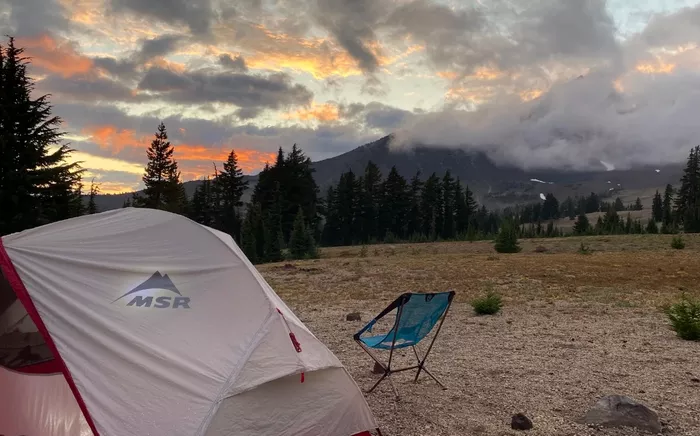Across the United States, more people are venturing into nature alone, seeking personal space and tranquility through solo camping. In Portland, where natural escapes are plentiful, the trend is especially noticeable as individuals head into the wild in search of solitude and a break from everyday pressures.
The increase in solo camping has sparked differing interpretations. For some, it’s a sign of America’s deepening loneliness crisis; for others, it’s a positive expression of independence and a desire for meaningful solo experiences. Whether driven by necessity or choice, the growing number of people camping alone reflects a broader cultural shift.
Data from The Dyrt, a camping app used to locate campsites, shows that 31% of campers in the U.S. spent at least one night camping solo in 2024. That figure is up from 30% in 2023, 24% in 2022, and 19% in 2021. The Dyrt’s CEO, Kevin Long, believes this is no fleeting trend. He notes that interest has consistently risen year after year, suggesting a lasting change in how people engage with the outdoors.
Long attributes much of the solo camping surge to the pandemic. As COVID-19 limited group gatherings and travel, many learned to enjoy and even prefer doing things alone. For some, that self-sufficiency and desire for solitary experiences have endured. The pandemic, Long explains, made people more creative about how to seek adventure, and solo camping has since become a fixed part of that landscape.
For those who take to the trails alone, the appeal is clear. Solo trips offer unmatched freedom—from determining one’s own hiking pace and meal schedule to deciding on spontaneous detours without needing to consult anyone else. The silence and solitude of being in a forest, hearing only the wind rustling through the trees, is a rare and treasured experience for many.
However, solo camping is not without its downsides. There’s no one to rely on in case of injury or exhaustion, and carrying all supplies can be physically demanding. While stories can still be shared with friends, they often lack the richness of shared memories. Photos and tales never quite replace the feeling of being there with someone.
Safety is a serious consideration for solo adventurers. Campers are advised to research trails in advance to avoid unexpected hazards, inform someone of their plans and expected return time, and be particularly cautious in areas with limited cell service. Responsible outdoor behavior is crucial too, including adhering to Leave No Trace principles.
While solo camping may not appeal to everyone, it continues to offer a reset button for those who choose it. As Kevin Long puts it, heading into nature alone can be a profound way to reconnect—with the world and with oneself.
Related Topics
- Camp Jojo to Launch Second Site for Children with Complex Needs in Cumbria by 2026
- Temecula Valley Balloon Festival Set to Soar with Music, Rides, and Wine
- Oregon Offers Free Camping and Parking on State Parks Day, June 7

